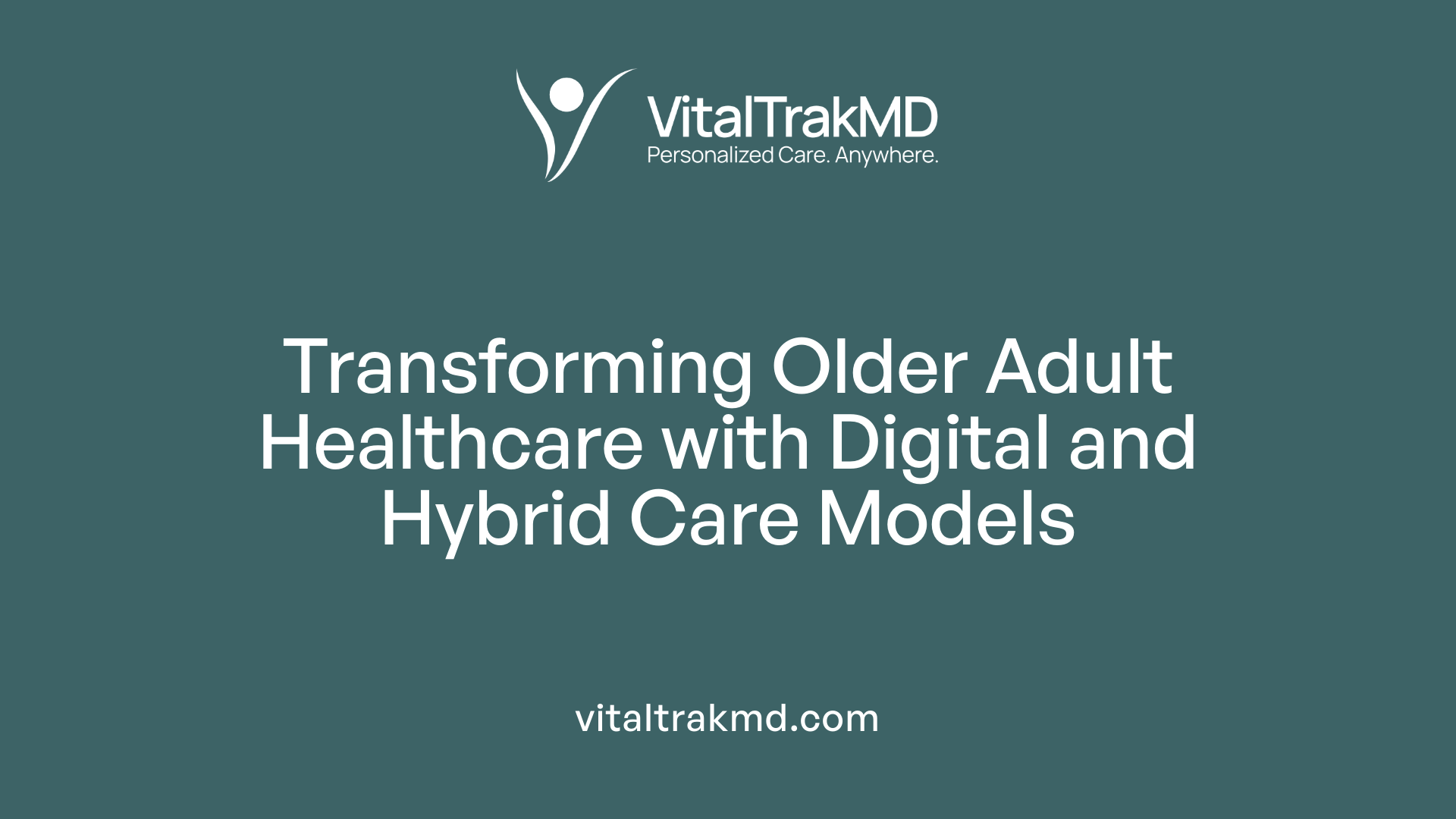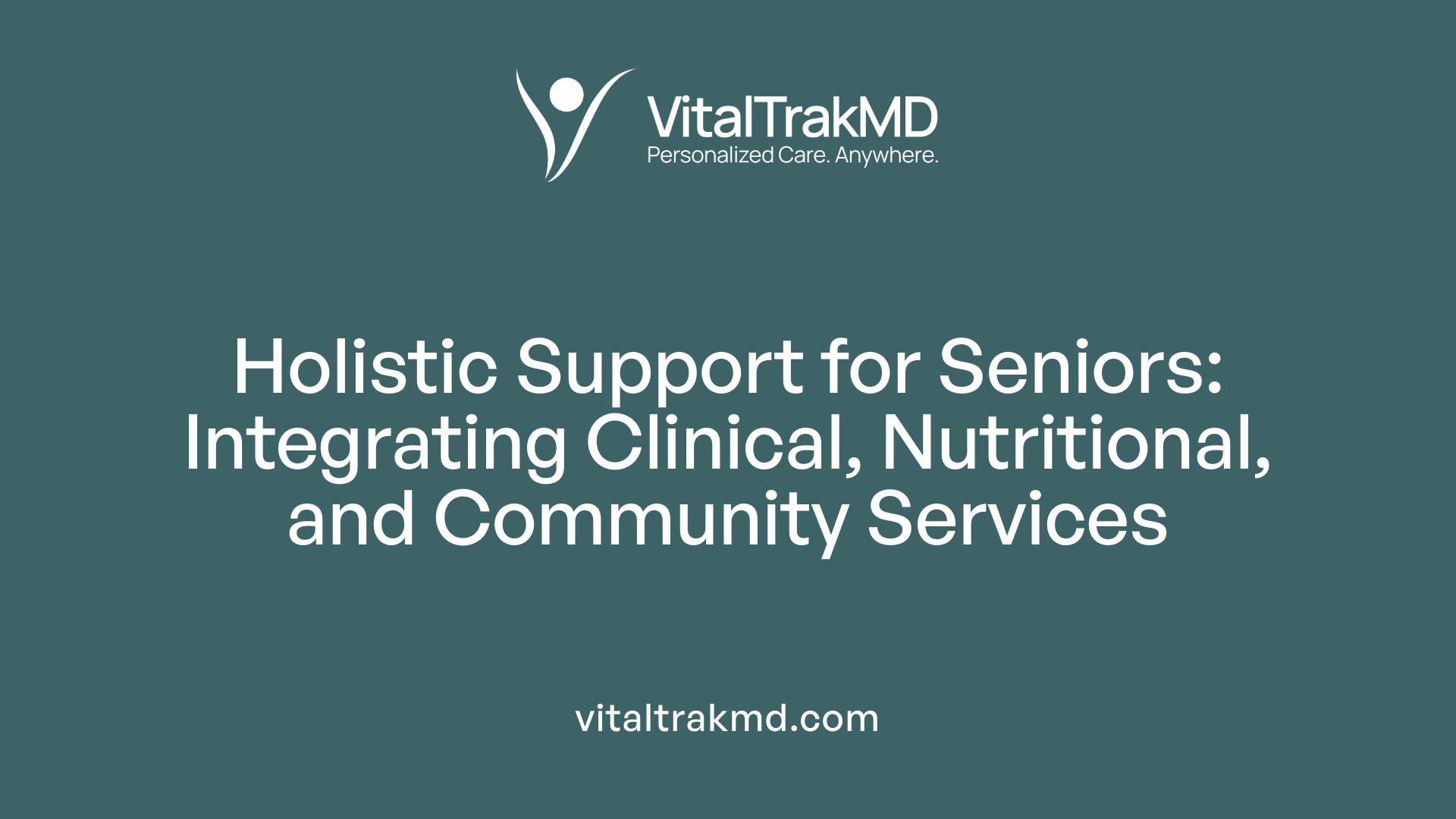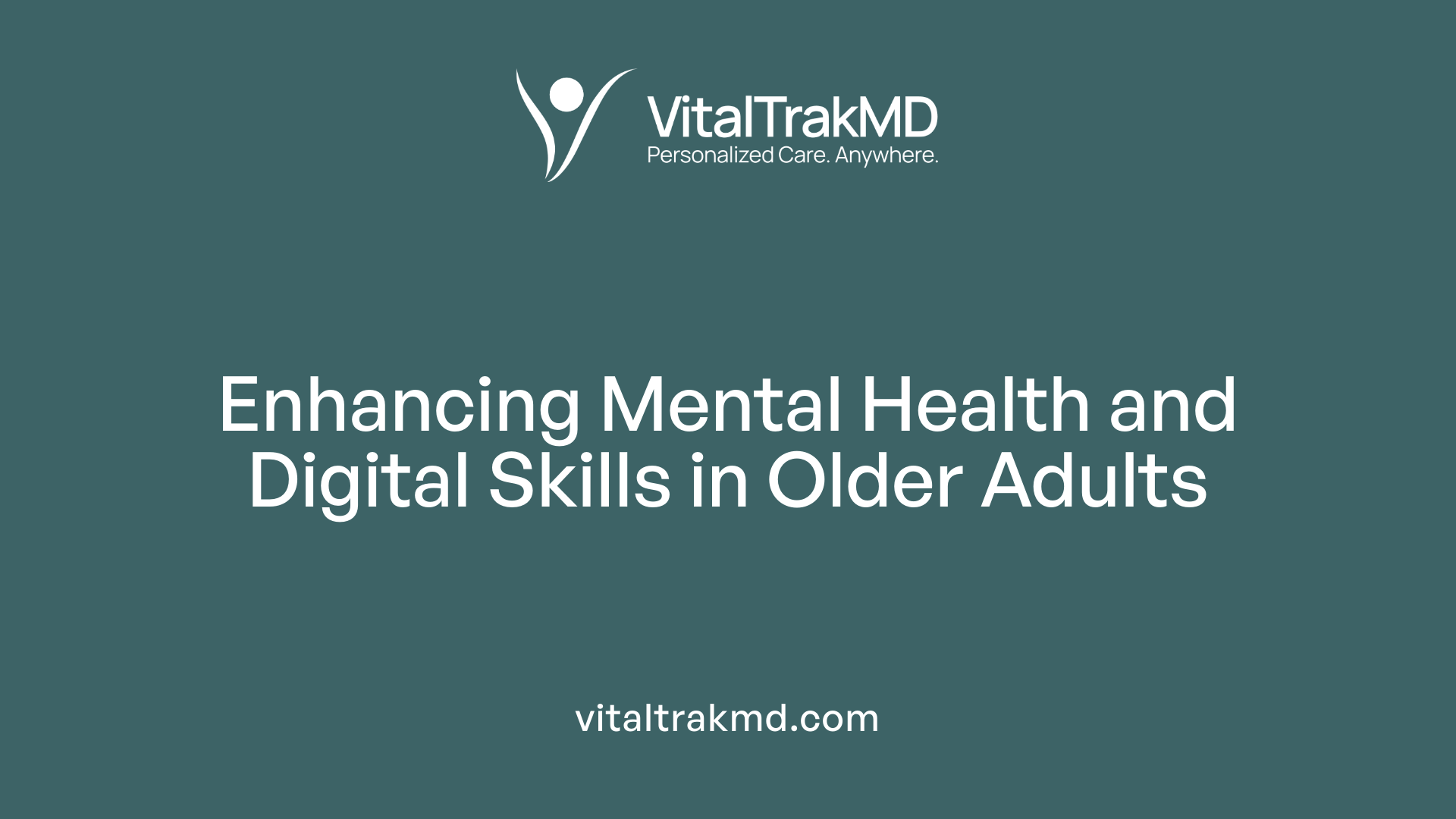How Hybrid Programs Support Seniors Facing Multiple Chronic Conditions

Transforming Elderly Healthcare with Hybrid Models
As the aging population grows, supporting seniors facing multiple chronic conditions through effective, personalized, and accessible healthcare becomes increasingly vital. Hybrid programs that blend digital health tools with in-person services are proving transformative in delivering comprehensive care tailored to individual needs, fostering independence, and enhancing quality of life. This article explores how these innovative models are shaping the future of senior care, their core features, practical implementation, and real-world benefits.
Role of Digital Health and Remote-In-Person Hybrid Models in Managing Multimorbidity
 Digital health and hybrid care models have transformed how older adults with multiple chronic conditions (MCC) manage their health, especially in underserved or rural areas where access to traditional healthcare may be limited.
Digital health and hybrid care models have transformed how older adults with multiple chronic conditions (MCC) manage their health, especially in underserved or rural areas where access to traditional healthcare may be limited.
These innovative approaches allow for more frequent contact between patients and healthcare providers through telehealth, which can be conducted via videoconferences, phone calls, or remote monitoring devices. Such technologies enable continuous oversight of health parameters like blood pressure, blood glucose, and medication adherence, improving overall health management.
Research shows that these digital platforms not only enhance physiological outcomes but also significantly benefit mental health. For example, repeatedly engaging with digital health tools has been linked to increased health literacy, reduced health distress, and improved depression scores among seniors.
Moreover, remote-in-person hybrid models facilitate better medication adherence and foster healthier behaviors. They support the consistent use of health data submissions and encourage morning routine monitoring, which helps in early detection of issues and timely interventions.
A hybrid healthcare approach also helps reduce hospitalizations and emergency department visits. Studies involving community-based programs and digital platforms illustrate decreased hospitalization rates—by as much as 31%—and fewer nursing home placements after implementing comprehensive telehealth services.
Facilitators of successful digital health integration include reliable technological infrastructure, stakeholder engagement, and training to improve digital literacy among seniors. Challenges like infrastructure limitations, resistance to technology, and staffing shortages need ongoing attention.
In summary, combining digital health tools with traditional in-person care creates a more accessible, efficient, and personalized healthcare journey for older adults living with complex conditions. These models promise to bridge gaps in healthcare access, support self-management, and ultimately lead to better health outcomes in this vulnerable population.
Integration of Clinical, Nutritional, and Community Services in Hybrid Programs

How do hybrid health programs integrate clinical, nutritional, and community services for older adults?
Hybrid health programs aim to create a seamless connection between various health and social services to better support older adults, particularly those with multiple chronic conditions. These programs typically involve multidisciplinary teams that include healthcare providers, nutritionists, social workers, and community organizations.
A common approach starts with comprehensive training that combines classroom education and hands-on experiences. Trainees learn in diverse settings such as hospitals, community health centers, and food service environments. This mixed learning fosters collaboration and helps professionals understand how different sectors work together.
The programs emphasize interdisciplinary teamwork, encouraging professionals to develop personalized care plans. These plans cover medical treatment, nutritional support, and social services, ensuring a holistic approach to health management.
Designing such programs involves integrating curricula on clinical nutrition, community health, food policies, and public health strategies. This education prepares participants to design and execute evidence-based interventions, educational activities, and policies suitable for older adults.
Community-based interventions are core components, often including outreach through local organizations and policy frameworks that facilitate access to services. By bridging clinical care with nutritional support and social engagement, hybrid programs can effectively address the complex needs of seniors.
This integrated model not only improves disease prevention and health promotion but also helps in managing symptoms more effectively while enhancing quality of life for older adults.
Impact of Hybrid Interventions on Psychological Well-Being and Digital Literacy

How do hybrid digital and in-person interventions support mental health and social engagement among seniors?
Hybrid approaches combining digital tools with face-to-face interactions have shown promising results in enhancing psychological health for older adults. These programs foster social connections and reduce feelings of loneliness and isolation, which are common issues in aging populations. For example, community-based models that include nurse-led case management and volunteer services have improved self-efficacy and mental well-being. By integrating regular social interactions through digital platforms and in-person visits, seniors experience improved mood, greater engagement with their community, and a sense of belonging.
What types of training are used to boost digital skills among older adults?
Effective training programs focus on improving digital literacy, which is essential for older adults to fully benefit from remote health services and social platforms. Initiatives like Kupuna Tech and Kupuna Connect provide training on using smartphones, apps, and telehealth tools. These programs often include hands-on instruction, ongoing technical support, and culturally relevant content. With dedicated training, seniors become more confident in navigating digital environments, which promotes independence and ongoing participation in health management and social activities.
How are privacy and technological barriers addressed in these interventions?
Concerns about privacy, data security, and technology access can hinder older adults from engaging fully with digital health solutions. Successful programs implement strict privacy protocols, educate participants on data protection, and involve trusted community organizations to foster trust. Additionally, bridging the digital divide involves providing necessary devices, internet connectivity, and tailored training to overcome technological barriers. Regular communication, user-friendly interfaces, and ongoing support are crucial for ensuring older adults feel safe, comfortable, and motivated to continue engaging with digital health tools.
| Aspect | Approach | Impact |
|---|---|---|
| Support for mental health | Community engagement, social platforms, personalized support | Reduced loneliness, improved mood, increased social ties |
| Digital skills training | Hands-on workshops, ongoing technical assistance, culturally relevant content | Greater confidence, independence, and health engagement |
| Privacy and technology barriers | Trust-building, privacy education, access to devices and internet | Higher participation rates, reduced digital anxiety |
These hybrid programs demonstrate that combining face-to-face support with digital technology can significantly improve the mental health, social engagement, and digital literacy of seniors. Tailoring interventions to address individual preferences and barriers enhances their effectiveness and sustainability in aging populations.
Features, Design, and Implementation of Supportive Hybrid Programs

How do hybrid programs support seniors with multiple chronic conditions through their features, design, and implementation?
Hybrid healthcare programs for older adults with multiple chronic conditions (MCC) combine evidence-based health interventions with practical service delivery strategies to create effective, scalable solutions.
One of the central aspects of these programs is personalized goal setting and lifestyle tracking. For example, digital health platforms used in some initiatives enable seniors to monitor symptoms such as blood pressure, blood glucose, and sleep patterns regularly. Most participants engaged with these tools multiple times weekly, primarily in the mornings, which encouraged consistent self-monitoring and awareness of their health.
These programs often incorporate educational components tailored to individual needs, fostering better understanding and management of chronic diseases. They also emphasize engagement through telehealth, remote education, and virtual coaching, making healthcare accessible even for homebound seniors.
Designing such programs involves active stakeholder involvement. Community organizations, healthcare providers, and technology developers work collaboratively to ensure the programs meet the real needs and preferences of older adults. User-centered development ensures interfaces are easy to navigate, and services are adapted to varying levels of digital mastery.
Frameworks like RE-AIM (Reach, Effectiveness, Adoption, Implementation, and Maintenance) are employed to systematically evaluate the program’s impact. This helps identify barriers, facilitators, and areas for improvement, ensuring programs can be refined for long-term sustainability.
Implementation strategies focus on thorough staff training, maintaining fidelity to intervention protocols, and fostering seamless teamwork among healthcare and social service providers. For example, innovations such as protocol-driven volunteer training in Shanghai increase volunteer and elder engagement.
Overall, hybrid programs support seniors by blending technological tools with personalized, collaborative care models. These efforts promote active aging, improve health management, and expand access—crucial elements in caring for an aging population with complex healthcare needs.
Supporting Aging in Place and Addressing Care Gaps

How do hybrid healthcare models support aging in place for seniors with multimorbidity?
Hybrid healthcare models are designed to help older adults with multiple chronic conditions (MCC) live safely and comfortably in their own homes for as long as possible. These models combine medical care, social support, and behavioral health services within community-based settings.
The approach offers personalized, holistic care tailored to individual needs. For example, coordinated services include regular primary care visits, physical therapy, home care, and rehabilitation, all accessible close to home. This integration helps manage conditions effectively while maintaining function and mobility.
Caregiver engagement is also a vital part of these models. They involve family members and community workers in care planning, providing education, support, and resources to help caregivers better assist older adults.
Supporting independence involves fostering self-efficacy through digital health tools and self-management programs. These initiatives allow seniors to monitor their health parameters regularly, set personal health goals, and engage with healthcare providers remotely.
Evidence shows that such comprehensive, community-centered approaches reduce frailty, lower the risk of falls, and decrease hospitalizations. They also address social and emotional needs, reducing loneliness and mental health issues.
Overall, hybrid healthcare models promote a choice for seniors who wish to age within their communities, delivering tailored care that enhances well-being while respecting their preferences for independence.
| Aspect | Features | Benefits |
|---|---|---|
| Community-based services | Primary care, home care, rehabilitation | Improves access, supports mobility |
| Caregiver engagement | Education, support, resource sharing | Enhances care quality, reduces burden |
| Digital health tools | Remote monitoring, self-management | Promotes independence, early intervention |
| Personalization | Tailored care plans | Better health outcomes, increased satisfaction |
Shaping the Future of Elderly Care
Hybrid models that integrate digital and in-person services are transforming elderly care by enhancing accessibility, personalization, and coordination across health and community sectors. These approaches support aging in place, improve health outcomes, and foster independence among older adults with complex health needs. As technology advances and care frameworks evolve, hybrid programs hold immense potential to deliver equitable, efficient, and effective healthcare tailored to the evolving needs of the senior population, ensuring a healthier, more connected aging experience.
References
- A hybrid type 1 trial protocol of patient priorities care for ...
- Effectiveness of a digital health coaching self-management ...
- A community-based health–social partnership program for ...
- How Home-Delivered Meals Can Link Older Adults ...
- Red Cross-Integrated Elderly Care: A Hybrid Digital ...
- Home-based digital health technologies for older adults to ...
- Hybrid Healthcare Model – Aging in Place - Cambridge Village
- Using Hybrid Effectiveness Studies to Facilitate ...
- How Hybrid Programming is Transforming Senior Centers
- Study protocol: Type III hybrid effectiveness-implementation ...
Recent articles
Want to Feel Better and Live Healthier?
Join hundreds of patients taking control of their health with personalized care that fits their life – not the other way around.
Rated 4.8/5 by 32+ customers







